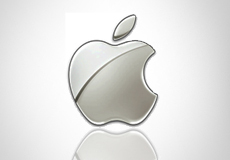Are We Closer to a Marketplace for Used Digital Content?
March 11, 2013
Amazon and Apple, today’s biggest forces in electronic goods, are separately pursuing a digital marketplace, where items such as e-books, music, movies and software can be bought, sold and exchanged. The Apple system would enable this to happen through file transfers. However, the system would limit the digital copy to one user at any given time. Will content producers eventually see their work devalued in such a marketplace?
 “In late January, Amazon received a patent to set up an exchange for all sorts of digital material,” reports The New York Times. “The retailer would presumably earn a commission on each transaction, and consumers would surely see lower prices.” However, there are publishers and media companies who fear the approach could affect the value of their content, similar to what resulted when Amazon began selling used books 13 years ago.
“In late January, Amazon received a patent to set up an exchange for all sorts of digital material,” reports The New York Times. “The retailer would presumably earn a commission on each transaction, and consumers would surely see lower prices.” However, there are publishers and media companies who fear the approach could affect the value of their content, similar to what resulted when Amazon began selling used books 13 years ago.
The U.S. Patent and Trademark Office published Apple’s patent application on March 6. This has raised the issue of whether or not the system would be breaking copyright law, specifically with the buying and selling of iTunes songs. This was an issue for startup ReDigi that resold iTunes songs and was sued by Capitol Records for infringement. There is also the problem with other forms of media such as movies and e-books. The main concern is that even when the item is traded, the owner could reproduce the item to be sold.
“The technology to allow the resale of digital goods is now in place, and it will cause a dramatic upheaval,” said Bill Rosenblatt, president of GiantSteps, a technology consulting firm. “In the short term, it’s great for consumers. Over the long term, however, it could seriously reduce creators’ incentive to create.”
 Both companies have been trying to unravel this snag in their plans. The layout of the digital marketplace would allow users to sell and lend the digital items from their “personal data store.” Once the item is sold or traded, it will be deleted from the seller’s “data store” automatically. And while there are concerns regarding creator incentive, others such as public libraries are embracing the idea of decreased restrictions on digital media.
Both companies have been trying to unravel this snag in their plans. The layout of the digital marketplace would allow users to sell and lend the digital items from their “personal data store.” Once the item is sold or traded, it will be deleted from the seller’s “data store” automatically. And while there are concerns regarding creator incentive, others such as public libraries are embracing the idea of decreased restrictions on digital media.
“The vast majority of e-books are not available in your public library,” said Brandon Butler, director of public policy initiatives for the Association of Research Libraries. “That’s pathetic.”
According to NYT, the new digital marketplace design for Amazon would show customers a list of secondhand media they can buy or sell, as well as which digital objects are “available for movement.”
“If these things can’t be owned, who is going to make sure they exist going forward?” Butler added. “Without substantial changes, we can’t do what libraries have always done, which is lend and preserve.”

No Comments Yet
You can be the first to comment!
Leave a comment
You must be logged in to post a comment.